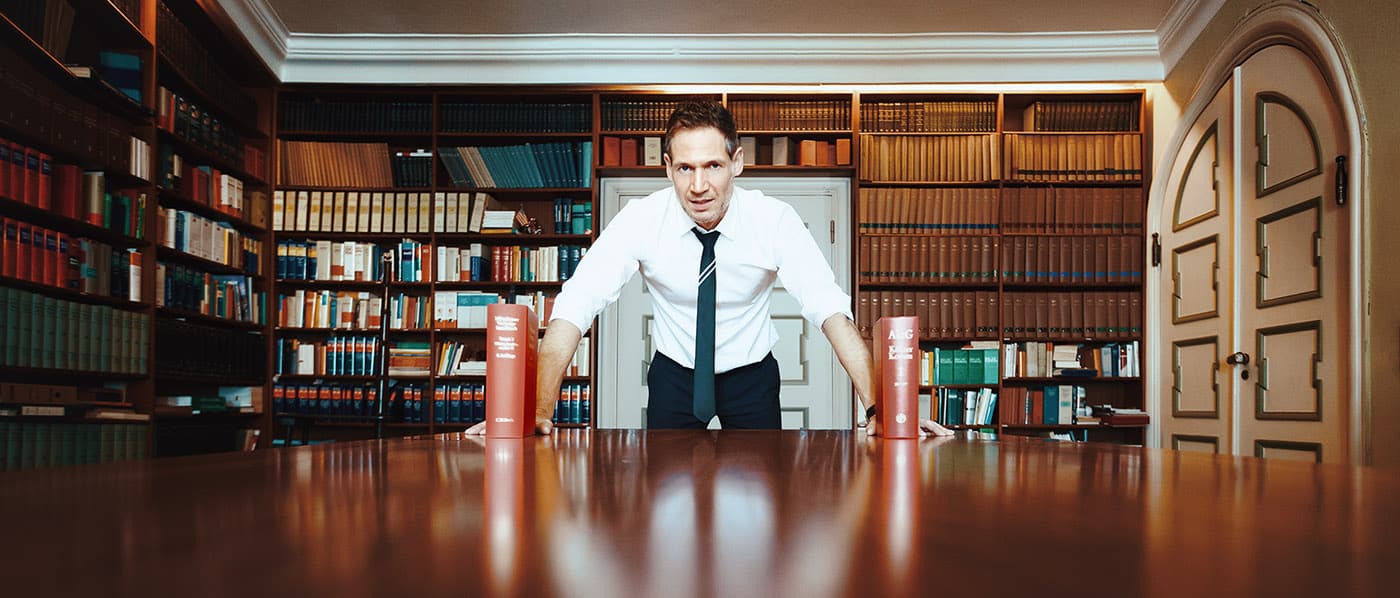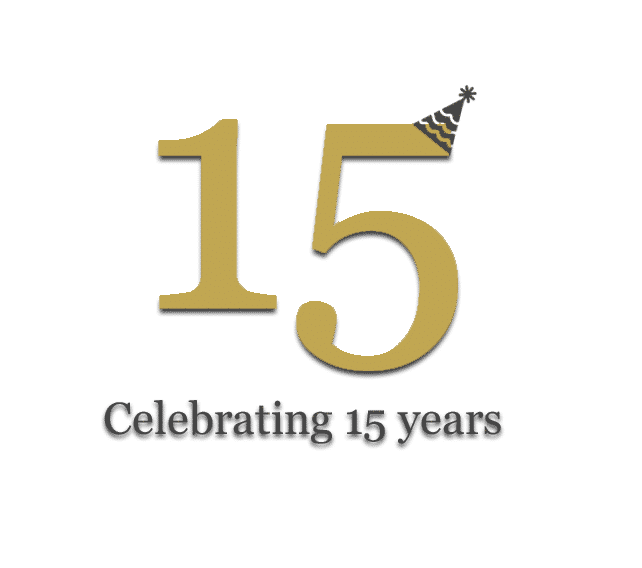
Christian Zierhut is the german “Pirate Hunter”, who tracks down counterfeits and protects brands from exploitation
Hunting Down Counterfeit Lawyer helping brands worldwide
Rooting out and destroying counterfeits, collaborating with partners from all over the world: Christian Zierhut, a Lawyer helping brands with in-depth knowledge in the field of anti-piracy, well-known and respected by his peers, which helps him to cope with his difficult task, as coordinator of global brand protection programmes and investigations and actions against online and offline targets.
He has been protecting widely recognised and famous brands for years, and does everything he can to reduce the brand risk of his clients and increase brand performance.
This ranges from fake Baby Born ® and Frisbee® discs, to slavishly imitated vehicle parts to model couture, comic superheroes and merchandise from Formula 1 and MotoGP world champions. In this interview, the 46-year-old brand protection expert reveals how he identifies counterfeiters and why trademark owners should talk with him.
Mr Zierhut, please introduce yourself, and how did everything start for you? | Lawyer helping brands
I’m 46 years old and I studied in Würzburg, where I also completed my first and second state examination. I probably started my law career in high school. I completed the “Business Law” course and discovered that with the German Civil Law Code – in its abstract, generally applicable norms – you can solve almost any case. I found that fascinating.
My parents ran a number of consumer electronics stores. During my school days, I was already solely responsible for one of these stores, with everything that went with it: purchasing, planning advertising campaigns and managing employees.
So I was familiar with economic issues, and there was also this fascination for law. Enrolling to study law was only logical.
Mr Zierhut, you seem to be committed to justice. Where does this passion come from?
I always develop a particularly great passion when the chemistry is right between me and my client. I know exactly how it is when you have to fight as a creative entrepreneur against envious imitators and freeloaders. Perhaps one in ten persons is really creative.
This one person gives everything, sits down and develops a design, a new product, invests a lot of time, energy, money and lifeblood.
And then there are nine others around, who make it easy for themselves by simply copying them and saving all the development costs. A quick profit is more important to these people than anything else. And that is unacceptable.
As a man with a certain love of principles, do you approach some things in an unconventional way?
Values such as conscientiousness, diligence, reliability and loyalty are important to me. This is how I measure myself, but also my team. I have to be able to rely on the word of my colleagues without having to set up a hundred-page contract for everything.
I think a healthy mix makes work successful: principles and values provide a solid framework, but instinct for new situations, a gut feeling – that has to fill the frame. The courage to find unconventional solutions lets me tackle things and push them forward.
You were the first to found a law firm in the form of a joint stock company. That made you a pioneer in your field
In 2002, the joint-stock company was the only company form for lawyers that gave me the freedom to implement my corporate goals. That was unconventional, but right. My corporate concept was awarded 1st place by the “BJU Young Entrepreneurs” in 2003. Today this law firm is one of the world’s leading law firms for trademark protection.

Mind reading adventure. Young nerd lawyer predicting judgment. Get an enforceable copy right here. | Lawyer helping brands
20 years as a pioneer and lawyer – what were your milestones?
My first company “UNIcomp”, one of the first direct sales companies for computers, with which we dominated the market for students during the years of study in all German university cities, the letter with the exam results, founding of my law firm, the first restraining order and my involvement in West Africa. First in 2015 in the fight against Ebola and now again with Corona.
For the IOM and Red Cross in Togo, Senegal and Gambia I provide self-developed water disinfection devices that are used in the field units, hospitals and at the airport in Dakar.
Most recently, my law firm was given an official government mandate to prosecute product piracy. We work side by side with the official task forces, and we are particularly concerned with counterfeit drugs, which are a major threat.
Through my work for Precisport, the general merchandise licensee for Formula 1 and MotoGP world champions, and for Christian Audigier and his “Ed Hardy” brand family – probably the largest piracy mandates Europe has seen – my law firm has attracted worldwide attention also through our recent work for the Frisbee® and Hula-Hoop inventors “Wham-O”, Stan Lee’s superhero rights holder “POW Entertainment”, Baby Born’s “Zapf Creation” Group “, the” Frida Kahlo Corporation “and the traditional Japanese company Sekiguchi “Monchhichi”, to name just a few. We regularly succeed in creating a real “X-ray image” in a short time, uncovering the causes and taking countermeasures until the market is completely “cleared up”.
From my first years I still have a case in mind for a small German publisher against one of the largest publishers in the world – Axel-Springer AG. It was like David versus Goliath and in the end we came out victorious. I am also proud of my work for Toni Rieger.
Back then, it was a turning point for german jurisprudence as to whether the European market would be flooded with professionally produced, slavishly imitated vehicle parts from China. We have confiscated entire shipping halls with vehicle parts. For a suspension manufacturer, we dismantled shocks for days and confiscated the patent-infringing component.
My encounters with Richard Rawlings, Mika Häkinnen and Walter Röhrl.
Finally, my award as “Germany’s best lawyers” from US Best Lawyers® & Handelsblatt. This award cannot be bought for money, like other “Global Awards”. It has to be earned.
What is meant by a “pirate hunter”?
To put it simply, we are looking for counterfeit products. And we intervene if our clients’ trademark rights are infringed. We work closely with the customs authorities, search warehouses and seize containers and take the counterfeit items out of circulation as soon as possible.
Even though I spend a lot of time at my desk, I still like to roll up my sleeves and get into a container to look for fakes
What tasks do you expect at your desk?
The tasks vary widely. We look into reports when our agents or our clients themselves have been informed of legal violations. We research counterfeit products online and if we find what we are looking for, we consider the right strategy.
We always have to consider the local jurisdiction and legal situation, because you cannot always proceed according to the same pattern. I can’t imagine a more exciting job!
Why is it worth taking action against product piracy?
Some companies are aware of the phenomenon, but do not worry about the effects, and some are even happy to be faked and thereby become even better known. This joy only lasts until loss of sales and damage to their image occur and they are sued for damage to property or health.
Counterfeiters use the “good reputation” of a product to deceive buyers about its origin and quality.
Counterfeiters do not have to spend money on research, development and market introduction. The goods are sold through long and opaque distribution chains. Buyers who believe they have purchased the original attribute poor quality and early wear and tear to the original manufacturer.
If counterfeits leads to damage to health, manufacturers may be held liable even though they did not produce the counterfeit themselves. Often the theft of ideas begins with the relocation of production to a country with low production costs – but also low protection standards.
What property rights are available to your clients? (Lawyer helping brands)
Registered property rights, i. e. patents and trademarks, copyright and competition law are the protection system for intellectual property. Property rights can be differentiated according to what they protect.
We have patents and utility models available for technical inventions; brand and title for identifying goods and services. Protection of creative services is via copyright and design law.
Competition law ensures that services are not unfairly exploited. It is absolutely necessary to protect your intellectual property at an early stage. Anyone who fails to register a property right can usually not invoke it.
The leading nations have agreed on minimum standards in the field of trademark, patent, design and copyright law within the so-called “TRIPS” agreement. It is now much easier and cheaper to build an international portfolio.
What do you ask of the counterfeiters?
In addition to prohibition, removal and information, we also demand compensation. In practice, it has proved useful to determine a fictitious licence that the counterfeiter would have had to pay the rights holder for use under normal market conditions. Licence fees that the rights holder obtains from licensees can be used as a guide for the assessment.
A number of consequential claims, although rarely asserted in practice, can be highly effective in certain cases. The claim for recall or removal of the goods from distribution; the claim for surrender of the manufacturing tools; the claim for production of banking, financial and commercial documents, the claim for publication of the judgment in daily newspapers and trade journals at the counterfeiter’s expense, and the right to have counterfeit goods destroyed at the infringer’s expense.
Is there a “king strategy”?
There is no single universal strategy. We combine various strategic approaches depending on the situation. When it comes to legal measures, a basic distinction must be made between three areas: preventive, detective and repressive measures. Preventive measures are the registration of industrial property rights, which creates barriers to market entry against imitators.
In addition to border seizure, detective measures include monitoring the registers for competing industrial property rights applications. Repressive measures are a combination of civil law, administrative and criminal law measures, tailored to the individual case, as well as the involvement of the customs authorities for border seizure. In this way, plagiarism can be intercepted and destroyed before it can circulate freely in the market.
Are you specifically committed to the European market?
Yes and no. Of course we are very active in Germany and approach counterfeiters from other EU countries as often as possible with German courts as this brings considerable cost advantages for our clients.
Most of the counterfeit products are sold in Europe, followed by the US and Africa.
My goal is to prevent counterfeit products from getting into the country from China, India and for example Pakistan, across the borders or ports, or even better, never leaving the country of origin.
Since the counterfeiters do not stop at the borders, we are involved worldwide, especially in the USA and Africa.
How is your team made up?
Our team consists of IP lawyers, product and IT experts. We are in constant contact with our clients.
What motivates you in your job?
That we make the world a little safer every day.
Thanks for your frank words.
The interview was conducted by Melanie Roth.
Lawyer helping brands Lawyer helping brands Lawyer helping brands Lawyer helping brands Lawyer helping brands Lawyer helping brands Lawyer helping brands Lawyer helping brands Lawyer helping brands Lawyer helping brands Lawyer helping brands Lawyer helping brands Lawyer helping brands Lawyer helping brands Lawyer helping brands Lawyer helping brands Lawyer helping brands Lawyer helping brands
Z I E R H U T * I P
Experts for Global Brand Protection
With unparalleled experience we defend the valueable brands of our clients on all marketplaces worldwide using a combination of our very efficient algorithms that identify IP infringements, an unique brand protection strategy, our close collaboration with customs, investigating authorities and the state task forces and our network of local agents.

